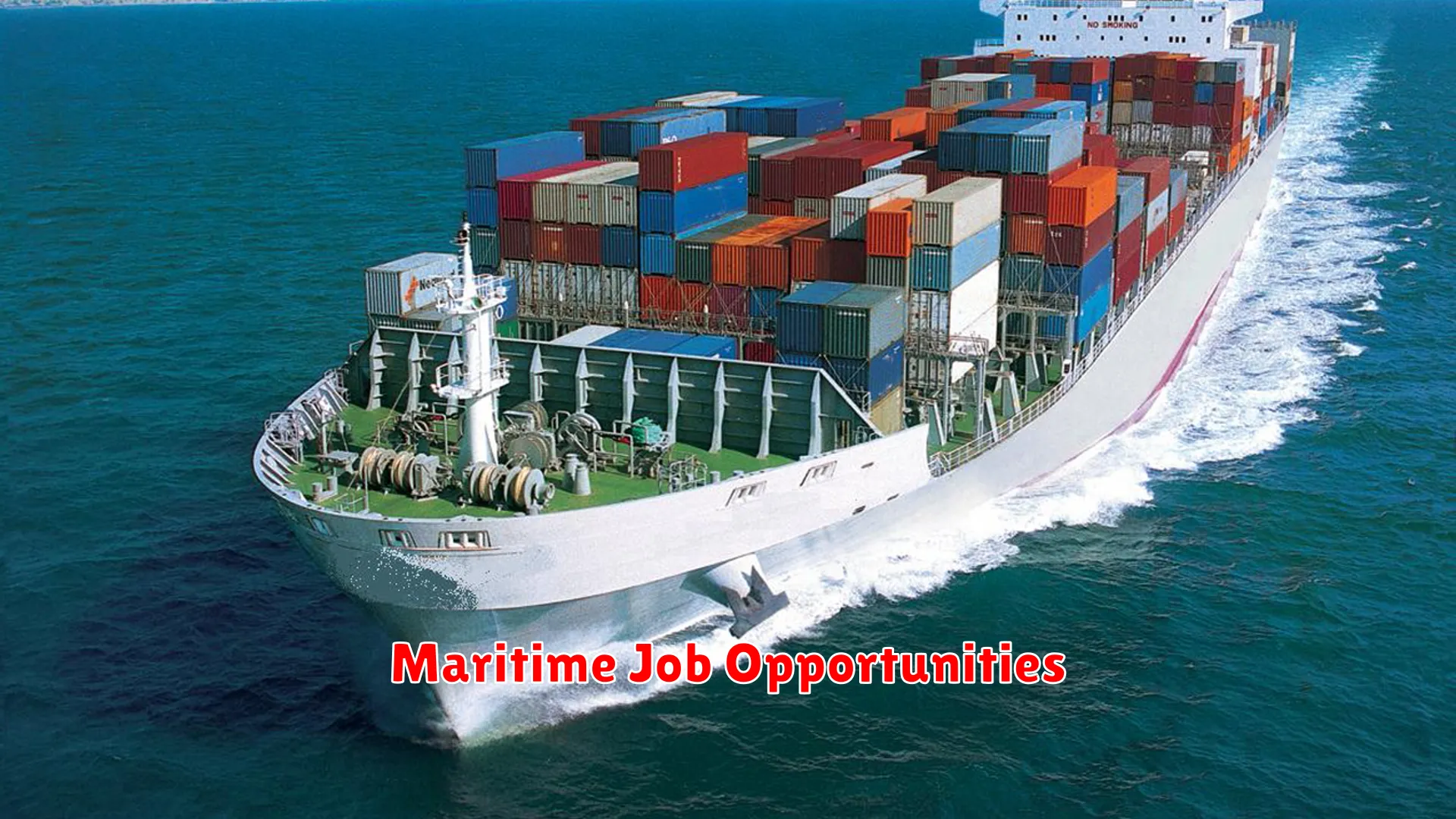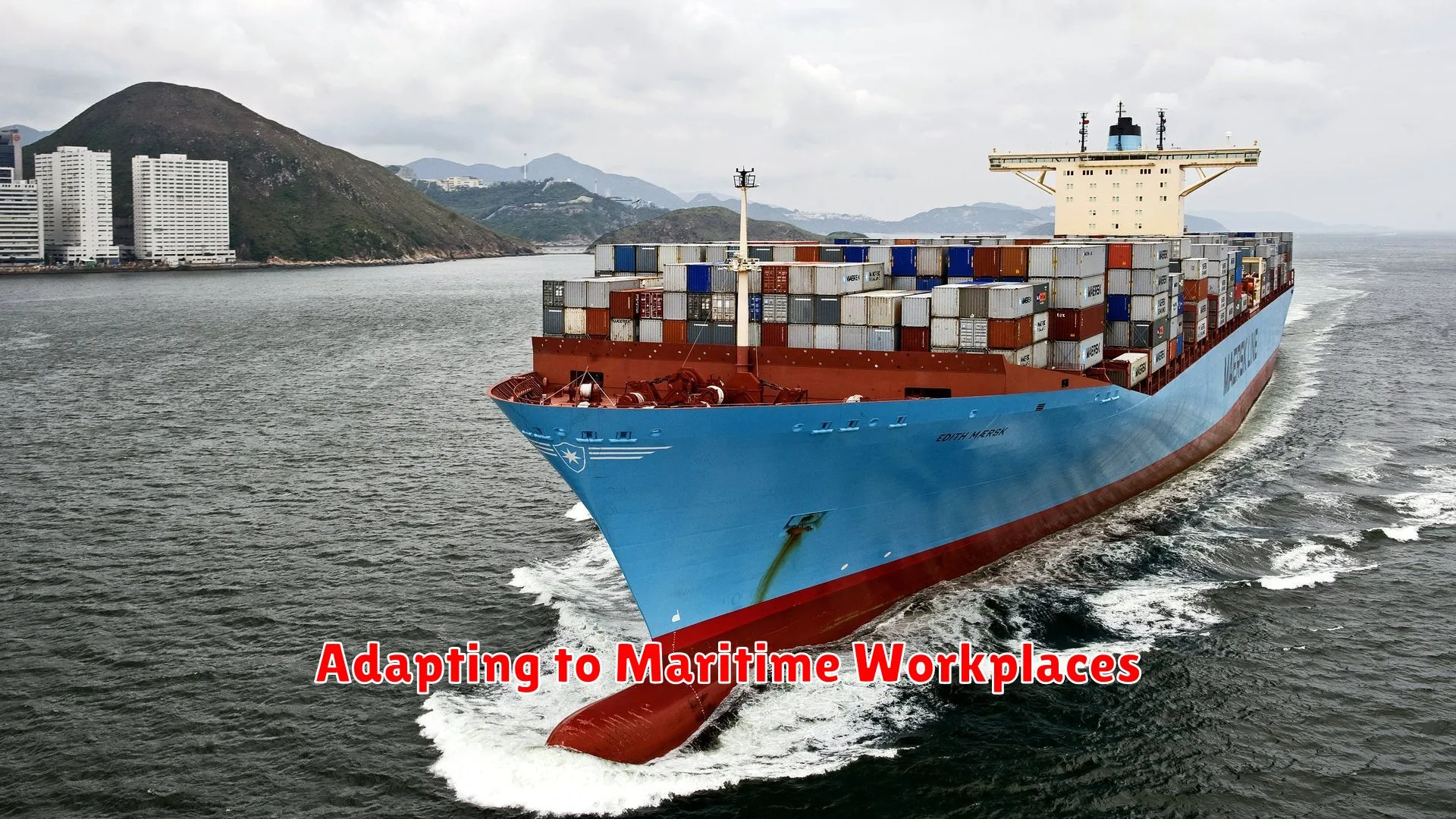
Embark on a journey to discover the myriad career options within Sri Lanka’s vibrant shipping and maritime industry. Explore the diverse opportunities that await in this thriving sector.
Maritime Industry Overview
The maritime industry in Sri Lanka plays a significant role in the country’s economy, with the shipping sector being a vital component. Sri Lanka’s strategic location along major international shipping routes has positioned it as a key player in the global maritime trade network. The industry encompasses a wide range of activities, including port operations, maritime services, shipbuilding, and maritime logistics.
Sri Lanka boasts several major ports, such as the Port of Colombo, which is one of the busiest ports in South Asia. These ports serve as crucial hubs for transshipment and cargo handling, facilitating trade between Asia, Europe, and Africa. The country’s maritime industry offers diverse career opportunities across various sectors, from shipping management to marine engineering.
The government of Sri Lanka has been investing in infrastructure development to enhance the efficiency and capacity of its ports. Initiatives are underway to modernize port facilities, improve connectivity, and streamline maritime services. This focus on infrastructure development is expected to further bolster the competitiveness of Sri Lanka’s maritime industry on a global scale.
Maritime Job Opportunities

Exploring career paths in Sri Lanka’s shipping and maritime industry can lead to numerous job opportunities for individuals interested in this dynamic sector. With its strategic location and growing maritime activities, Sri Lanka offers a range of rewarding jobs in various sectors of the industry.
Port Operations
One of the key areas for maritime job opportunities in Sri Lanka is in port operations. Roles such as port managers, terminal operators, and logistics coordinators are essential for efficient port functioning. Professionals in this field oversee cargo handling, vessel operations, and ensure compliance with safety regulations.
Marine Engineering
Marine engineering offers challenging and lucrative opportunities in Sri Lanka’s maritime industry. Engineers specialized in ship design, maintenance, and repair play a crucial role in keeping vessels seaworthy. Careers in marine engineering can range from naval architect to marine surveyor.
Shipping and Logistics
Professionals in shipping and logistics play a vital role in ensuring the smooth movement of goods within the maritime industry. Job roles in this sector include supply chain managers, freight forwarders, and warehouse supervisors. This area offers opportunities for individuals with strong organizational and problem-solving skills.
Maritime Law and Compliance
Maritime law and compliance are critical aspects of the industry that require skilled professionals to ensure adherence to international regulations and laws. Job opportunities in this field include maritime lawyers, compliance officers, and risk managers who help navigate legal complexities within the maritime sector.
Skills Needed in Maritime Careers
In the dynamic and challenging field of maritime careers in Sri Lanka’s shipping and maritime industry, certain skills are crucial for success and advancement. These skills not only enhance job performance but also open up doors to various opportunities within the industry.
Technical Expertise: Proficiency in technical skills related to ship operations, navigation, and maintenance is essential for maritime professionals. A strong foundation in areas such as marine engineering, naval architecture, and vessel operations is highly valued.
Problem-Solving Abilities: The ability to think on your feet and effectively solve complex problems is a key skill in the maritime industry. Professionals often encounter challenging situations that require quick and efficient solutions to ensure the safety and efficiency of maritime operations.
Communication Skills: Effective communication is vital for successful collaboration with team members, clients, and stakeholders in the maritime sector. Strong communication skills help in conveying information clearly, resolving conflicts, and building relationships in the industry.
Adaptability and Resilience: The maritime industry is known for its unpredictable nature and demanding work environments. Professionals need to be adaptable to changing circumstances, resilient in the face of challenges, and able to maintain composure under pressure.
Regulatory Knowledge: A strong understanding of maritime regulations and compliance requirements is fundamental for professionals working in the industry. Staying updated on international maritime laws and industry standards is essential to ensure adherence to legal and safety protocols.
Leadership Skills: Aspire to lead and manage teams in the maritime sector; strong leadership skills are valuable for career growth. Effective leadership qualities, such as decision-making, delegation, and motivational abilities, can propel professionals into managerial roles within the industry.
Finding Maritime Jobs

For individuals interested in pursuing a career in Sri Lanka’s shipping and maritime industry, there are various avenues to explore when seeking maritime jobs.
1. Networking: Building a strong professional network within the industry is crucial. Attend industry events, seminars, and job fairs to connect with potential employers and colleagues who can provide insights and job opportunities.
2. Online Job Platforms: Utilize online job platforms and websites that specialize in maritime job listings. These platforms often feature a wide range of job openings in different sectors of the maritime industry.
3. Industry Associations: Joining industry associations related to shipping and maritime can be beneficial. These associations often have job boards, offer training programs, and provide networking opportunities that can help in finding suitable job placements.
4. Internships and Training Programs: Consider participating in internships and training programs offered by maritime companies or industry organizations. These opportunities can provide valuable hands-on experience and may lead to full-time employment.
5. Professional Development: Continuous learning and staying updated on industry trends and regulations are important in the maritime sector. Pursuing further education or certifications in maritime studies can enhance your skills and make you more competitive in the job market.
By actively engaging in networking, utilizing online resources, joining industry associations, seeking internships, and focusing on professional development, individuals can enhance their prospects of finding rewarding maritime jobs in Sri Lanka’s dynamic industry.
Interview Strategies for Maritime Positions
Securing a career in Sri Lanka’s vibrant shipping and maritime industry can be a rewarding journey, yet the competition for maritime positions remains fierce. To stand out during the interview process, aspiring candidates must employ effective strategies that showcase their skills and passion for the maritime sector.
1. Research the Company and Industry
Prior to the interview, candidates should conduct thorough research on the potential employer and the current trends within the maritime industry in Sri Lanka. This demonstrates a proactive approach and a genuine interest in the organization’s operations.
2. Highlight Relevant Experience and Skills
During the interview, it is crucial to highlight relevant experience, such as previous work in the maritime sector or any certifications related to the industry. Emphasizing key skills like problem-solving, leadership, and adaptability can also set candidates apart.
3. Showcase Industry Knowledge
Showing a solid understanding of key maritime concepts, regulations, and challenges can impress interviewers. Candidates should be prepared to discuss industry developments and demonstrate how their knowledge can contribute to the company’s success.
4. Communicate Teamwork and Collaboration Skills
In the maritime sector, teamwork is essential for successful operations. Candidates should share examples of their ability to work collaboratively with diverse teams, communicate effectively, and resolve conflicts constructively.
5. Demonstrate Problem-Solving Abilities
Interviewers often assess a candidate’s problem-solving skills through real-life scenarios. Being prepared to discuss past challenges faced in maritime settings and the solutions implemented can showcase one’s ability to think critically under pressure.
6. Exhibit Professionalism and Enthusiasm
Finally, maintaining a professional demeanor throughout the interview and conveying enthusiasm for the maritime industry can leave a lasting impression. Dressing appropriately, maintaining eye contact, and expressing a genuine passion for the industry are essential.
Adapting to Maritime Workplaces

Working in Sri Lanka’s shipping and maritime industry requires a unique set of skills and abilities to thrive in diverse maritime workplaces. To excel in this industry, professionals must be willing to adapt to the challenges and demands of maritime work environments.
One of the key aspects of adapting to maritime workplaces is understanding the dynamic nature of the industry. Maritime professionals in Sri Lanka need to stay updated on the latest trends, regulations, and technologies to remain competitive in the global market.
Effective communication skills are paramount in maritime workplaces, where collaboration among diverse teams is crucial for successful operations. Professionals must be able to communicate clearly and efficiently with colleagues, superiors, and clients to ensure smooth sailing in daily operations.
Adapting to the physical demands of maritime work is also essential. Long hours at sea, unpredictable weather conditions, and physically demanding tasks require individuals to maintain high levels of fitness and mental resilience.
Problem-solving skills play a vital role in navigating the challenges of maritime workplaces. Whether it’s troubleshooting technical issues onboard a vessel or addressing operational setbacks, professionals must be quick on their feet and adaptable to find effective solutions.
Furthermore, cultural awareness is crucial in the maritime industry, given the global nature of shipping operations. Understanding and respecting diverse cultures and customs not only fosters better teamwork but also enhances communication and relationships with international partners.
In conclusion, adapting to maritime workplaces in Sri Lanka’s shipping and maritime industry involves a combination of technical expertise, interpersonal skills, physical endurance, and cultural sensitivity. By embracing these aspects, professionals can navigate the complexities of maritime work environments and build successful careers in this dynamic industry.
Conclusion
In conclusion, the diverse career opportunities in Sri Lanka’s shipping and maritime industry offer promising prospects for individuals looking to embark on a dynamic and rewarding professional journey.
















